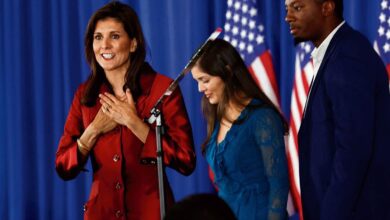“The European Parliament is prepared” to hear calls to remove immunity from members of the European Parliament involved in investigations into Russian interference, according to Metsola
During her speech in Strasbourg before the last plenary of the mandate, Metsola addressed claims that certain members of her parliament had received funds from a network supported by the Kremlin in order to disseminate Russian propaganda throughout Europe.

Following the March failure of a suspected propaganda effort in the Czech Republic, a legal inquiry into the allegations has been initiated by authorities in Belgium, the official seat of the European Parliament.
“We continue to wait for information to be received from national authorities, because this would require any waiver of immunity being adopted by this House,” said Metsola.
“National authorities would have to inquire about investigations similar to the ones we conducted in the past. Then we will proceed. According to her, “we will do our job as we’ve always done” in the event that such becomes necessary.
This comes as concerns grow that Kremlin proxies may be attempting to influence the democratic vote by manipulating information in the two months leading up to the EU elections, when 720 members will be elected to the European Parliament.
As a member of the center-right party, the European People’s Party (EPP), which is widely believed to have won those elections, Metsola is re-running for re-election to represent her hometown of Malta.
Russiagate is the second massive investigation into bribery to shake the European Parliament since Metsola took leadership midway through her tenure. The parliament is the sole democratically elected body in the EU.
Some present and past members of the European Parliament were implicated in a scandal in December 2022, only nine months after she took office, for allegedly accepting bribes from officials in Qatar, Morocco, and Mauritius to sway decisions in their favor inside the hemicycle.
Raids on the homes of several members of the European Parliament who are facing charges were requested by Metsola directly.
As she told Euronews, it was a “gut punch.”
The reaction from her institution, she said, has prevented the actions of a few from bringing disrepute to the parliament.
The decision was ours that day. She made the comment in reference to the so-called Qatargate scandal, which mainly involved lawmakers from the center-left Socialists and Democrats (S&D) group, and how it could have happened in any parliament. She also mentioned that the issue could have been influenced by factors such as party political color or geographical location.
However, I was adamant about getting out of it. What I meant was that this house must proceed. “This House needs to make sure that alarm bells will be sounded and firewalls will be put in place if something like this has to happen again,” she said.
We do not want this mandate—which is massive in terms of impact—to be soiled by the alleged conduct of a tiny number, and I am glad of the reaction of the members when they acknowledged that. I believe that sums up our current situation.
Metsola has taken the lead in implementing a reform of ethics that aims to eliminate loopholes and address conflicts of interest. Because of this, there are more stringent regulations on the acceptance of gifts, travel paid for by foreign countries, side employment, and a cooling-off period after leaving office for MEPs.
Thursday in plenary is when the proposal to form an ethics committee to monitor compliance with the new regulations will be considered. Eight different EU institutions met to negotiate the arrangement, which was based on a proposal put forward by the Commission in response to a request from the parliament.
Euronews will transmit President Roberta Metsola’s entire interview on Thursday night as part of the Global Conversation.






